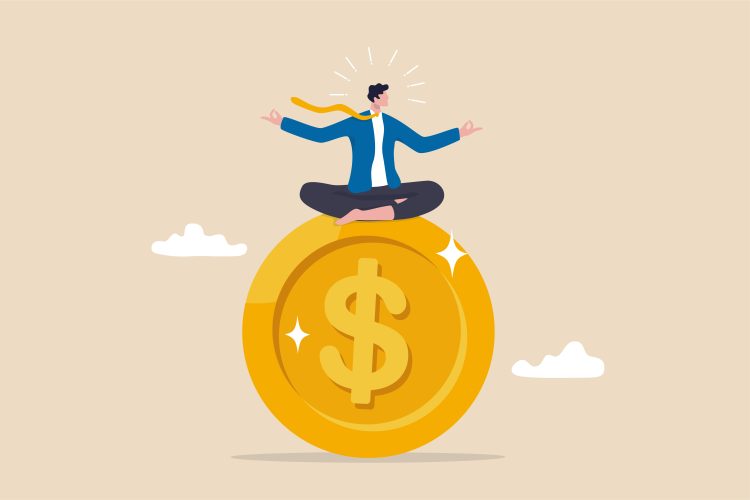Spending your money on things that you want can be pretty tempting — but it can also leave you with empty pockets and a long credit card statement. Below are a few healthy financial habits to curb that urge to spend.
Pay your bills on time
Your credit score is the epitome of your financial health. That being said, one of the biggest influences on your credit score is whether or not you pay your bills on time. If you’ve found yourself missing a few payments, consider setting up a system to remind you to make them, such as setting different alarms, or making use of a calendar. You could also try to automate most of your expenses so that you don’t have too many to keep track of.
Try saving as much money as you can
One of the most important things you can do in order to have healthy financial habits is to start saving as much money as you possibly can. Not only will this benefit you in the future when it’s finally time for you to retire, but it could also save you if you suddenly have to pay for an unexpected cost.
We know it’s not easy to set money aside, especially if you’re living paycheque to paycheque. If this is the case, try figuring out where you could cut costs. Review all of your expenses, and see if there are any that you can reduce, such as your cellphone bill, your grocery bills, your outings, etc. This way, you can use the difference for setting money into a savings account.
Automate your savings
You might find it useful to automate your savings so that you don’t feel tempted to make any purchases you might later regret. Make a plan to set aside a certain amount of money per paycheque. Once the money comes into your bank account, that amount will automatically go towards your savings. You won’t even have to think about it anymore! To do so, see if your bank can set up automatic transfers. If they don’t, then talk to your employer about automatically depositing a portion of your pay into a savings account.
Pay off credit cards in full
If you want to be able to live your life without any debts or financial burdens, try to pay off your credit card in full at the end of each month. That way, you can ensure that you’ll have a good credit score and that your debts won’t just keep accumulating.
Another big factor that affects your credit score is your credit utilization. Credit bureaus like Equifax and Transunion like to see consumers spend less than 30% of their total credit. So the less you use, the better. That doesn’t mean that you shouldn’t use your card at all! In fact, credit bureaus want to see how responsible you are with money.
As long as you’re able to pay the money you’ve borrowed back, your credit score will stay in the green and you won’t have to worry about paying tons of money back in interest fees.
Figure out what your goals are
The sooner you figure out what your financial goals are, the closer you’ll be to realizing them. In fact, determining what your financial goals are will help you create the best plan of action for your personal situation. It’ll also help you see what your priorities are in terms of savings and/or debt repayment. Not only will your financial goals provide you with financial freedom and health, but they will also increase your chances of doing so by strengthening your resolve and motivation.
It isn’t enough to think of a long-term plan. After all, who would feel motivated on a month-to-month basis when they’re trying to look 10 years into the future? In order to keep feeling that drive to achieve your goals, you should set short-term ones as well. Those little victories will increase your desire to keep plowing forward and achieving your objectives.
Create a budget
After you’ve determined what your financial goals are, you should create a budget. A budget will help you keep track of your objectives. It will track all of the money coming in and out of your account. It will also help you make adjustments whenever you see a dip in income or a rise in spending due to unexpected expenses.
To create the best budget, calculate your total net income. Then, calculate all of your expenses — variable, fixed, and periodic. Then, subtract those expenses from your income and see what you’re left with. With the difference, you can choose to set that money towards your debts or towards savings. It all depends on what your financial goals are.
We know that budgeting isn’t the easiest thing in the world. Luckily, there are many different budgeting styles available to you as well as helpful online budgeting tools. Find the one that works best for you, and stick with it!
Check your budget first thing in the morning
In order to follow your budget appropriately, consider reviewing it first thing in the morning over a nice cup of coffee. This will ensure that you’re not veering off track. It will also allow you to make all of the changes necessary to your budget.
Reviewing your budget in the morning is a good reminder of how much you can spend for the day as well. The sooner you know just how much you can afford, the less stressed you’ll be by the end of the month.
If you’re struggling to make ends meet, contact a licensed insolvency trustee as soon as you can. The sooner you get rid of your debts, the sooner you can start partaking in healthy financial habits. And the sooner you’ll be able to reach all of your financial goals.


